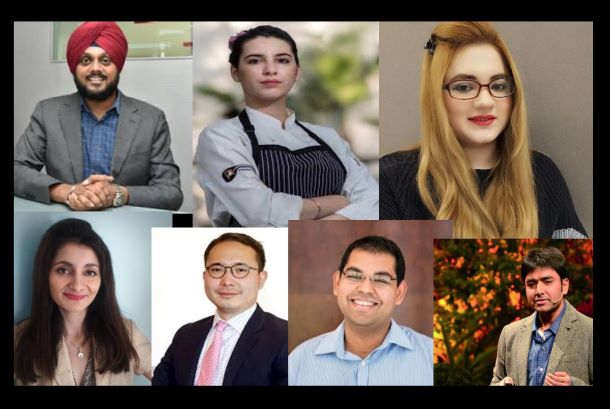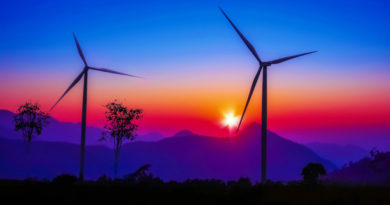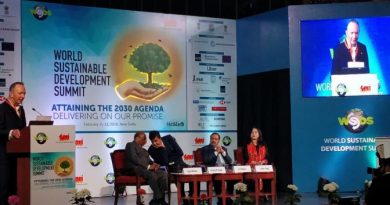The Renewable Energy Heroes of Forbes 30 Under 30 Asia Finalists

Forbes selected 30 entrepreneurs and game-changers, representing 23 countries and territories in the Asia-Pacific region, who have stood out for the right reasons for the world. We look at those who are finding alternatives and cleaner sources of energy which has become an all-important mission for young entrepreneurs in Asia.
As the stake has never been higher: About one-third, or 2.2 million of the world’s premature deaths each year — caused by air pollution-related diseases — occur in Asia, according to the World Health Organization.
In India, Simarpreet Singh’s Hartek Solar has a similar mission to provide clean and affordable energy across the country. The startup makes rooftop solar panels, which it says are easier to install and have lower maintenance costs due to a revamped design. The company has recently launched a plug-and-play solar power kit with a mobile solar van to provide sustainable electricity to rural communities.
Another hero is from the culinary world. A 28-year-old chef Anahita Dhondy who runs New Delhi-based Parsi restaurant SodaBottleOpenerWala, promotes the various types of Indian millets, which are nutritious and inexpensive homegrown grains, in dishes in the restaurant and in recipes posted on social media.
Meanwhile, in Pakistan, Zainab Bibi is also doing her part through Pakistan Society for Green Energy, a research organization she founded to develop alternative energy sources and create awareness about environmental issues. She has researched the production of bio-fuel from waste tissue papers and Camelina Sativa, a drought-resistant plant that can be turned into bio-diesel. In 2016, Bibi was also honored with a Queen’s Young Leaders Award for her success in creating public support in Pakistan for environmentally friendly initiatives. Another climate crusader is Pakistani water specialists Laila Kasuri. She is advocates taking a preventative approach to sustainability. Kasuri is currently a water analyst with Global Green Growth Investment’s Policy Solutions Division and has led the research at organizations such as the World Bank, the US Army Corps of Engineers, and the UC Davis Center for Watershed Sciences on climate-smart irrigation, flood risk reduction, and river basin planning.
From far east Mongolia in Ulaanbaatar, Orchlon Enkhtsetseg’s Clean Energy Asia, a joint venture between Mongolian telecom conglomerate Newcom and Softbank’s energy arm SBEnergy, is seeking to reduce Mongolia’s reliance on fossil fuel by building wind farms in the Gobi desert. To him, this is a task long overdue, as Mongolia depends heavily on fuel imports from Russia despite its vastly untapped wind and solar resources. The reliance contributes to severe air pollution during the winter heating season, and undermines the country’s potential as a clean energy exporter, he says. Now, with $128 million in funding, Clean Energy Asia has built its first 50 megawatt of wind farm in the Gobi desert, which became operational in 2017.
To young entrepreneurs, another important way to reduce the environmental impact of fossil fuel is increasing energy efficiency. iHandal, a Malaysia-based startup that Aaron Patel co-founded in 2009, tries to improve the thermal energy efficiency of commercial and industrial buildings. Its energy-saving heating systems have been widely used in the country’s hospitality sector, where the company claims to service manufacturers from Australia, Germany, Denmark, Austria and the U.S., achieving a more than 60% market share today.
Yashraj Khaitan’s Gram Power has a similar goal. Founded in 2010 out of the University of California and now based in India, the startup develops smart grid technologies to prevent the distribution loss of electricity. It installs smart meters, which can be connected to online management software to monitor energy uses and potentially reduce electricity bills. Now, it claims to have attracted a dozen clients including the hotel chain OYO and fast food franchise Subway in the country. Gram Power is also working to install smart meter projects in India’s rural parts.
Forbes 30 Under 30 Asia list undergoes a rigorous process to finalize the honorees. The process starts with over 2000 online nominations and then picked. This year’s judges included proficient entrepreneurs and business leaders such as Hiroshi Mikitani, CEO of Rakuten; JP Gan, Managing Partner at Qiming Venture Partners; Noni Purnomo, President Director of Blue Bird Group Holding; Kaifu Lee, CEO of Sinovation Ventures; Kishore Lulla, Philanthropist and Chairman of Eros International; Changpeng (CZ) Zhao, CEO of Binance; Falguni Nayar, Founder of Nykaa.com ; Patrick Grove, Cofounder and Group CEO of Catcha Group and 30 Under 30 Asia list alumnus, tennis superstar Kei Nishikori.




